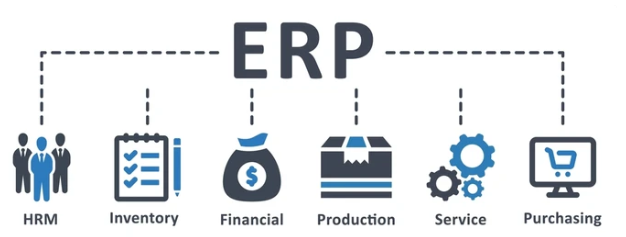
Advantages of using an ERP system
Enterprise Resource Planning (ERP) systems have become an integral part of modern businesses, offering a wide range of benefits that can significantly improve efficiency, productivity, and overall performance. In this blog post, we will explore some of the key benefits of using an ERP system and how it can help businesses streamline their operations and achieve their goals.
One of the primary benefits of using an ERP system is the integration of various business processes into a single, cohesive platform. This allows for seamless communication and collaboration across different departments, eliminating the need for multiple standalone systems and reducing the risk of errors and inconsistencies. By consolidating all of the essential functions of a business, such as finance, inventory management, human resources, and customer relationship management, into a single system, an ERP can provide a comprehensive view of the entire organization, enabling better decision-making and strategic planning.
Another significant advantage of using an ERP system is the automation of repetitive tasks and processes. By automating routine activities, such as data entry, report generation, and inventory tracking, businesses can free up valuable time and resources, allowing employees to focus on more strategic and value-added activities. This can lead to increased productivity and efficiency, as well as reduced operational costs and improved customer satisfaction.
Furthermore, an ERP system can provide real-time access to critical business data, enabling employees to make informed decisions and respond quickly to changing market conditions. With accurate and up-to-date information readily available, businesses can improve their agility and responsiveness, gaining a competitive edge in today’s fast-paced business environment.
In addition to streamlining internal operations, an ERP system can also enhance communication and collaboration with external stakeholders, such as suppliers, partners, and customers. By providing a centralized platform for managing relationships and transactions, businesses can strengthen their supply chain, improve customer service, and foster better collaboration with their business partners.
Moreover, an ERP system can help businesses comply with industry regulations and standards, as well as improve risk management and security. With built-in controls and safeguards, businesses can mitigate the risk of fraud, errors, and data breaches, ensuring the integrity and confidentiality of their sensitive information.
Finally, an ERP system can provide valuable insights and analytics that can help businesses identify trends, opportunities, and areas for improvement. By leveraging advanced reporting and analytics capabilities, businesses can gain a deeper understanding of their operations and performance, enabling them to make data-driven decisions and drive continuous improvement.
In conclusion, the benefits of using an ERP system are numerous and can have a profound impact on the success of a business. From streamlining operations and improving productivity to enhancing communication and collaboration, an ERP system can provide a solid foundation for growth and innovation. As businesses continue to face increasing competition and complexity, investing in an ERP system can be a strategic decision that pays off in the long run
